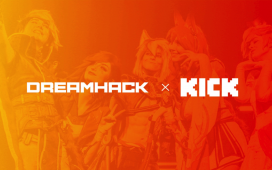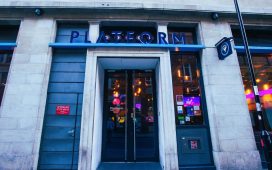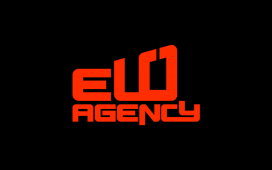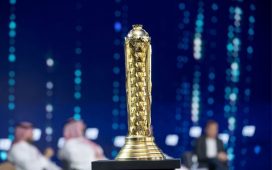Mentioned in this article
The Call of Duty World League played its final match this past weekend, as eUnited topped 100 Thieves to become the Black Ops 4 season champion. However, Call of Duty esports isn’t going away. For 2020, Activision Blizzard’s long-running first-person shooter series is going global instead with the franchised, city-based Call of Duty Global League.
Ten franchise slots have been sold as of this writing, with familiar Overwatch League team owners such as Envy Gaming and OverActive Media in the mix, as well as growing esports hubs such as Los Angeles and Dallas. However, one organization and location pairing in that initial group stands out as new and different: WISE Ventures Esports and Minnesota.
WISE Ventures Esports is part of the investment arm of the Wilf Family, the owners of the NFL’s Minnesota Vikings, and this is their first foray into the industry. According to Brett Diamond, chief operating officer of WISE Ventures Esports and previously the Vikings’ director of partnership strategy, the family had considered previous esports opportunities, but didn’t find the ideal fit until the franchised Call of Duty Global League came about.
“The Wilf Family has taken a look at multiple opportunities in the esports space, and for them, their goal was never to be the first ones in. Their approach was more to wait until it was the right opportunity, the right situation—and then when they felt like they had that, to dive in headfirst,” Diamond told The Esports Observer. “With the Call of Duty League, we really felt like this was the right opportunity at the right time, between the historic success of the Call of Duty franchise, the vision of Activision Blizzard, and the success of Overwatch League.”
Diamond said that the Wilf Family had watched closely as franchised efforts such as the Overwatch League and the League of Legends Championship Series (LCS) took hold, to see how those concepts ultimately blossomed into fully-formed and operational leagues. After watching for a while, the family was ready to make its play in the region.

“It was more about getting comfortable with the ecosystem and wanting to see how it played out over the first couple of years of that new model,” he said. “It felt like the evolution and maturation of the franchise league model over the last couple years is what really gave the Wilf Family the confidence that now was the right time, and Call of Duty was the right game.”
“It’s All Entertainment”
Diamond’s own experience stretches back 18 years in traditional sports, first as an intern for the NFL’s Washington Redskins and then Baltimore Ravens before joining the NFL for more than a decade. Most recently the NFL’s senior manager of events before departing in 2016, he oversaw Madden NFL esports efforts on the league side, and then worked on some esports initiatives with the Vikings before shifting over to WISE Ventures Esports.
Even with professional esports business experience to augment his extensive traditional sports career and the Wilf Family’s experience owning the Vikings since 2005, Diamond said that they don’t feel like they have all of the answers on how to run an esports organization.
“We’ll be the first to admit that we need to listen and learn from the esports community, and understand what’s important to them. I think if we come in with an attitude that because we’ve had success in traditional sports that we will automatically be successful in esports, that’s not the right approach,” he said. “For us, the right approach is to take what’s been successful with the Wilf Family’s ownership of the Vikings in traditional sports, hire great people that have experience in esports, and work together to find the best possible model for how we run an organization going forward—and hopefully get the best of both worlds.”
Even so, he sees parallels between traditional sports and esports in terms of overall operational philosophy. In his mind, it’s all about listening to the fans, catering to what they want, and then attracting the best talent to put together something meaningful.

“At the end of the day, it’s all entertainment,” he said. “Any time you get people that are the best at what they do in the world, you get them together—and if they have a skill that the public finds interesting, then you’re going to be able to build something around that. It doesn’t matter if it’s somebody’s ability to throw a football, or look at a screen and process where to move their fingers on a controller, or kick a soccer ball.
“I think that’s one thing that we’ve seen over the last few years,” he added. “As the industry evolves, it’s all about finding people that have incredible talent and giving them a platform to use it.”
Getting WISE with Gary V.
WISE Ventures Esports has a very prominent partner in its Call of Duty franchise: investor, author, and social media icon Gary Vaynerchuk. He’s a longtime friend of the Wilf Family, and as he told The Esports Observer last month, also someone who has been eyeing the esports industry for years. Between the existing personal relationship and his confidence about the Call of Duty franchise, he decided to finally make the leap into esports.
Vaynerchuk said that he plans to be very involved in the franchise, not only to learn the ropes in esports but also to use his role as a public figure to help spread awareness. In fact, he believes that his clout may convince some players to join the franchise, given what he sees as the entrepreneurial ambitions of some pro players. “To this set of entrepreneur-laden players, I do believe we will sign a free agent that really fucking matters on the back of me,” he said.
“We’re incredibly excited about Gary’s involvement,” said Diamond. “He’s one of the foremost thinkers in marketing and particularly digital marketing. He’s got an incredible message of positivity, and it’s something that really resonates. He’s had a relationship with the Wilf Family for some time, and over the course of discussions, it seemed like this was the right opportunity to work together.

“When we think about what we’re going to need to do as an organization, in terms of building a brand and connecting with fans over social media, all of these things are what Gary’s as good as anybody in the business at doing,” he added.
Eyeing a Home
The Call of Duty Global League will begin with a similar home/away system as the one the Overwatch League will embrace in 2020, with teams playing in their home markets right from the start of the new franchised league. Activision Blizzard is still in the process of selling franchise spots for the Global League, so schedules have not yet been released for next season.
In the case of the Overwatch League, each team will host at least two two-day “homestand weekend” events during the 2020 season, in which other teams will come into town to play a series of matches. Thus far, teams have announced venues such as events arenas, music clubs, and college arenas for the events—but so far, at least, no OWL teams will have a permanent venue established for the season.
The Esports Observer spoke to Diamond before Activision Blizzard confirmed the home/away plans for the first Call of Duty Global League season, and at the time, he said that WISE Ventures would explore a variety of potential venues around Minneapolis for short-term home matches. Longer-term, the organization is looking at establishing an esports arena along with a cluster of other buildings, to draw fans in with an overall experience.
“Long-term, we’re actively evaluating the possibility of building an arena in Egan, Minnesota, on the Viking Lakes campus, which is where the Vikings practice facility is built,” he said. “And there’s a number of other construction projects going on that are all under the leadership of the Wilf Family. There’s a hotel going in, and there’s a number of other facilities. It’s really going to be an incredible campus when it’s all built up.

“We haven’t made any final decisions on building an arena,” he continued. “We’re actively looking into it. We’re intrigued by what we’ve seen from arenas that have been built to date and that are under construction. We like the idea of creating a hub of activity for the gaming community here. We have a lot of due diligence to do to make sure that it’s the right move to build an arena here, but it’s something that we’re excited about exploring.”
Unearthing an Audience
As mentioned, Minnesota is hardly a hub for esports at this point—but like Vaynerchuk, Diamond sees that as more of an opportunity than a challenge. He points to engaged fans of Minnesota’s traditional sports as a sign of hope, as well as what currently looks to be an otherwise vacant regional presence in the league.
“We think it’s a great opportunity to bring a team to this market that hasn’t had major esports events here, and hasn’t had a team previously,” said Diamond. “The fans here have shown tremendous support, not just for the Vikings but every sports team in town. We think it’s an untapped market, and we like the fact that we kind of have the Midwest—a broader region to play with.”
He’s optimistic, but not unrealistic about the franchise’s chances of bringing in fans to watch Minnesota’s Call of Duty team play. “We’re not going to put 66,500 people in U.S. Bank Stadium for the first match, whenever that time comes,” he said, referring to the approximate capacity of the Vikings’ sizable home stadium. Even if that kind of local audience is more of a far-off wish than a reasonable expectation in the short-term, Diamond still thinks that there is potentially a very large market out there for Call of Duty esports.
“One of the things that excites us about Call of Duty is the long history of the franchise,” he said. “Certainly, we’re going to start by connecting and building a fanbase around the current fans of CWL that are in this region, but there are also a lot of people that play the game that may not watch CWL. We want to figure out how we can reach them.
“From our perspective, the market that we’re trying to reach—it’s not limited to any one type of audience. It’s anybody that’s engaged with that game and has had a relationship with the Call of Duty franchise over time,” Diamond continued. “We think there’s potential for this to be an incredible cultural experience, as well, where regardless of whether you play the game or not, we think that these events will appeal to a broad audience.”
Editor’s note: Interview conducted by Trent Murray














